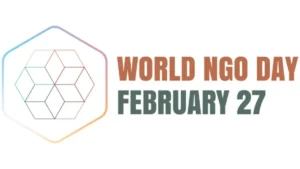Every year, 24th December marks the celebration of National Consumer Day in India. This significant day is observed to raise awareness about consumer rights and the responsibilities of businesses toward their customers. It commemorates the enactment of the Consumer Protection Act of 1986, a landmark legislation that redefined consumer rights in the country. For 2024, the theme is “Virtual Hearings & Digital Access to Consumer Justice”, emphasizing the role of technology in empowering consumers.
Consumer Rights Day 2024- Key Initiatives for 2024
This year’s National Consumer Day will witness the launch of several initiatives by Union Minister Pralhad Joshi in New Delhi. These include:
- Jago Grahak Jago App
- Jagriti App
- Jagriti Dashboard
These platforms aim to enhance consumer awareness, provide digital access to redressal mechanisms, and make consumer rights accessible to all.
National Consumer Day 2024 Historical Significance
National Consumer Day was first celebrated in 2000, following the revolutionary Consumer Protection Act of 1986. This legislation laid the foundation for recognizing consumer rights and establishing redressal mechanisms. Over the years, India’s economy has evolved drastically, influencing how consumers shop and interact with businesses. To address these changes, the Consumer Protection Act of 2019 was introduced, incorporating provisions for e-commerce, product liability, and mediation.
The Right to Information Act (RTI) further supplemented consumer rights by promoting transparency in governance. Together, these laws have empowered Indian consumers to make informed choices and seek redressal for grievances.
National Consumer Rights Day In India
The Consumer Protection Act grants six fundamental rights to safeguard consumer interests:
- Right to Safety: Protection from hazardous goods and services.
- Right to be Informed: Access to accurate details about products and services.
- Right to Choose: Freedom to select from a variety of goods and services.
- Right to be Heard: Representation in forums addressing consumer grievances.
- Right to Seek Redressal: Remedies for unfair practices and exploitation.
- Right to Consumer Education: Awareness about consumer rights and responsibilities.
Consumer Protection Laws in India
India has enacted several laws to strengthen consumer rights:
- Consumer Protection Act, 1986 & 2019: Establishes consumer councils and dispute redressal mechanisms.
- Food Safety and Standards Act, 2006: Ensures food safety and regulates food standards.
- Legal Metrology Act, 2009: Maintains standards for weights, measures, and trade practices.
- Central Consumer Protection Authority (CCPA): Investigates violations of consumer rights.
Consumer Disputes Redressal Agencies
The Consumer Protection Act establishes a three-tier redressal system:
- District Commission: Handles disputes up to ₹1 crore.
- State Commission: Handles disputes between ₹1 crore to ₹10 crore.
- National Commission: Handles disputes above ₹10 crore.
What Can You Do on National Consumer Day?
- Organize Awareness Campaigns: Participate in or host events promoting consumer rights.
- Share Personal Experiences: Write blogs or social media posts to inform others about unfair practices.
- Refuse Defective Products: Insist on quality and refuse to accept damaged goods to promote accountability.
Summary of the News
| Aspect | Details |
|---|---|
| Why in News | Every year, 24th December marks National Consumer Day in India. For 2024, the theme is “Virtual Hearings & Digital Access to Consumer Justice”. |
| Key Initiatives for 2024 | Launch of Jago Grahak Jago App, Jagriti App, and Jagriti Dashboard by Union Minister Pralhad Joshi to enhance consumer awareness and digital access. |
| Historical Significance | First celebrated in 2000 to commemorate the Consumer Protection Act of 1986. The Consumer Protection Act of 2019 added provisions for e-commerce and mediation. |
| Consumer Rights | 1. Right to Safety: Protection from hazardous goods and services. |
| 2. Right to be Informed: Accurate details about products and services. | |
| 3. Right to Choose: Freedom to select from a variety of goods and services. | |
| 4. Right to be Heard: Representation in forums addressing consumer grievances. | |
| 5. Right to Seek Redressal: Remedies for unfair practices and exploitation. | |
| 6. Right to Consumer Education: Awareness about consumer rights and responsibilities. | |
| Consumer Protection Laws | 1. Consumer Protection Act, 1986 & 2019: Establishes councils and dispute mechanisms. |
| 2. Food Safety and Standards Act, 2006: Ensures food safety and regulates standards. | |
| 3. Legal Metrology Act, 2009: Standards for weights, measures, and trade practices. | |
| 4. Central Consumer Protection Authority (CCPA): Investigates violations of consumer rights. | |
| Dispute Redressal Mechanisms | – District Commission: Handles disputes up to ₹1 crore. |
| – State Commission: Handles disputes between ₹1 crore to ₹10 crore. | |
| – National Commission: Handles disputes above ₹10 crore. | |
| Activities for Consumers | 1. Awareness Campaigns: Participate or host events promoting consumer rights. |
| 2. Share Experiences: Inform others about unfair practices through blogs or posts. | |
| 3. Refuse Defective Products: Insist on quality to promote accountability. |



 World Wildlife Day 2026: Why Medicinal P...
World Wildlife Day 2026: Why Medicinal P...
 National Science Day 2026: Honouring the...
National Science Day 2026: Honouring the...
 World NGO Day 2026: Why February 27 Matt...
World NGO Day 2026: Why February 27 Matt...








